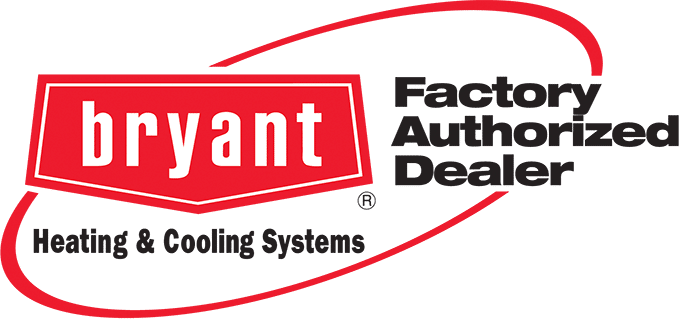
Are you considering adding a fireplace to your home, but aren’t sure what to choose? In this guide to different types of fireplaces, we’ll go over two of the most popular fireplaces: gas and propane, as well as the different styles of fireplaces you can choose from. Check out the menu below to jump ahead to a specific section:
1. Gas Fireplaces: Pros & Cons
2. Propane Fireplaces: Pros & Cons
3. Which Type of Fireplace Should I Choose?
4. Fireplace Styles
5. How Service 1st Can Help
Continue reading below to learn about all the topics above. Or, if you’re in the Cambridge, ON area and are ready to have a fireplace installed in your home and would like to learn more, contact Service 1st today. When you reach out to us, you’ll get to chat with one of our staff members right away – you won’t have to worry about complicated menus or long wait times.
Different Types of Fireplaces: Your Complete Guide
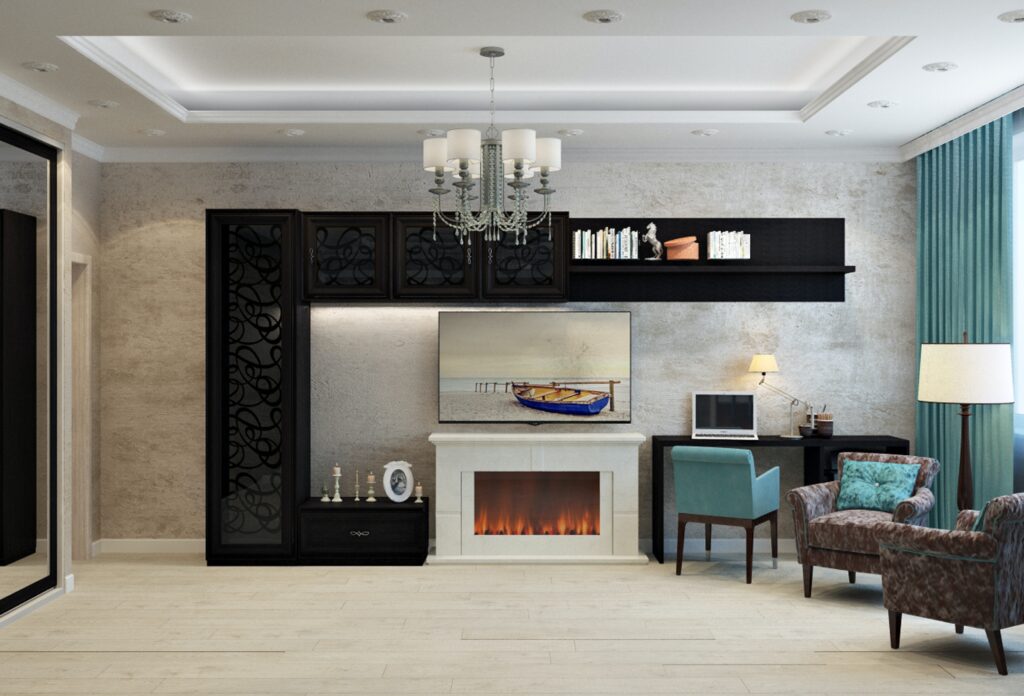
1. Gas Fireplaces
When you hear the term ‘gas fireplace,’ most people are referring to natural gas fireplaces. This is an important distinction, because propane is a gas, too! Natural gas fireplaces are a very popular choice for households and even businesses, as they are easy to use and relatively low-maintenance. Below, we’ll overview some of the biggest benefits of choosing a gas fireplace, as well as some of their potential drawbacks.
Gas Fireplace Pros
- Natural gas is light, which means if there’s a leak, it will typically disperse pretty quickly. While this can still pose a risk, it is a relatively safe gas to use indoors.
- Natural gas fireplaces are very easy to use. Just flip a switch and you’ll have heat in seconds!
- Gas fireplaces don’t require a lot of maintenance, though regular inspections are a great way to ensure your fireplace is safe and function for years to come.
- The monthly average cost to run your fireplace, in most cases, will be very low.
- Gas fireplaces are relatively easy to install*, especially for a trained HVAC professional.
- High quality gas fireplaces can last a very long time. With proper maintenance, they can last 20+ years.
Gas Fireplace Cons
- Natural gas is a fossil fuel. However the emissions on a single fireplace are not particularly significant, and it is considered the 3rd most eco-friendly fireplace option.
- Natural gas fireplaces can leak carbon monoxide (CO). It is the law to have a CO detector in your home in Ontario.
- Like all fireplaces, gas fireplaces come with a fire hazard risk. Check out these safety tips for running fireplaces in your home to keep you and your family safer.
- Natural gas is flammable, and comes with an explosion risk if it were to leak into your home.
Most of the cons that you’ll see with a gas fireplace are simply the potential drawbacks when you have any gas powered appliance in your home. When a gas fireplace has been properly installed by a professional, they are safe and easy to use.
However, all gas appliances have the capacity to cause harm to you or your home. Ensure you always read any manuals or instructions that come with your fireplace, and consider choosing a maintenance plan to ensure your fireplace stays functional for many years to come.
Learn more about gas fireplaces in the video above
* If you are interested in installing a fireplace, rely on the experts. For propane and gas fireplaces, rely on experienced and trained HVAC professionals to get the job done safely and correctly. Incorrect installation can result in a fireplace that simply doesn’t work or poses serious risk to your home and family.
2. Propane Fireplaces: Pros & Cons
Propane fireplaces are another type of ‘gas’ fireplace, though they use propane as fuel instead of natural gas. Both propane and natural gas fireplaces function very similarly, though there are some differences that you may want to consider before choosing which one is best for you and your home.
Propane Fireplace Pros
- Propane fireplaces can last a very long time, up to 20 years or longer. However, you will need to replace or refill your propane tank.
- Propane fireplaces have excellent heat output, and are very efficient at getting your space warmer, fast.
- If your home does not have access to natural gas, propane fireplaces are easier to install.*
- Propane fireplaces are quite environmentally friendly in comparison to different types of fireplaces.
- It does not cost a lot to run your propane fireplace on a regular basis.
Propane Fireplace Cons
- Propane gas is heavy. This means that if it leaks, it will collect and not disperse easily, make it a slightly more dangerous gas to have indoors.
- Propane fireplaces can leak carbon monoxide (CO). It is the law to have a CO detector in your home in Ontario because of the danger CO poses.
- Propane fireplaces come with a fire hazard risk. To learn more about safely using a residential fireplace, check out out these safety tips for running fireplaces.
- Propane is flammable, and comes with an explosion risk if it were to leak into your home.
The main difference between a natural gas fireplace and a propane fireplace is that with a propane fireplace, you will need a propane tank to use it. A propane tank typically sits outside of your home, somewhere a bit away from your house. While some homeowners have no issues accommodating this, it could be difficult to find a space for a tank if, for example, you live in a townhouse.
Other than that, propane and gas fireplaces function very similarly. If you haven’t heard much about propane fireplaces but are interested in learning more, contact the experienced HVAC professionals at Service 1st, and we can tell you more about this great heating option for your home.
If you don’t already have a propane tank, this video helps answers some questions you may have about owning one
* If you are interested in installing a fireplace, rely on the experts. For propane and gas fireplaces, rely on experienced and trained HVAC professionals to get the job done safely and correctly. Incorrect installation can result in a fireplace that simply doesn’t work or poses serious risk to your home and family.
3. Considering Types of Fireplaces: Which One Should I Choose?
If you are stuck between a propane and a gas fireplace, the first thing you should consider is if you have the space for a propane tank. If the answer is yes, there are a couple of other things to think about. It’s also important to note that both options cost around the same, though propane fireplaces can be a bit more complex to install.
While propane and gas fireplaces are safe when installed and used correctly, they do both pose fire and health risks that you should be aware of. If you are simply looking for the “safest” option, then a natural gas fireplace may be the best choice. However, it’s important to remember that all flammable gasses carry risks, and you should always use your fireplace safely and intentionally.
If you are looking for a fireplace with the very best heat efficiency, then a propane fireplace may be the best choice for you. While both a gas and propane fireplace can help make your space nice and toasty, propane fireplaces can do it very easily.
When considering different types of fireplaces, the best thing to do is consult with a professional if you’re stuck. They can help you learn more about the potential risks and how to mitigate them, as well as provide accurate information about product, labour, and installation fees you can expect.
4. Fireplace Styles
Propane and natural gas fireplaces are both a type of fireplace…but did you know that fireplaces also come in a wide range of styles? Freestanding stoves, direct vents, and inserts are all popular types of fireplace styles. In most cases, both propane and natural gas fireplaces are available in these styles. See below to learn more.

Freestanding stove
A freestanding stove is a style of fireplace that is not inserted into a wall. While they are generally placed up against a wall, you can fit them into awkwardly shaped corners or unique areas in your home.
Because they are more open, they allow for great transfer of heat and are a perfect way to get some warmth into your home on cold, winter days.
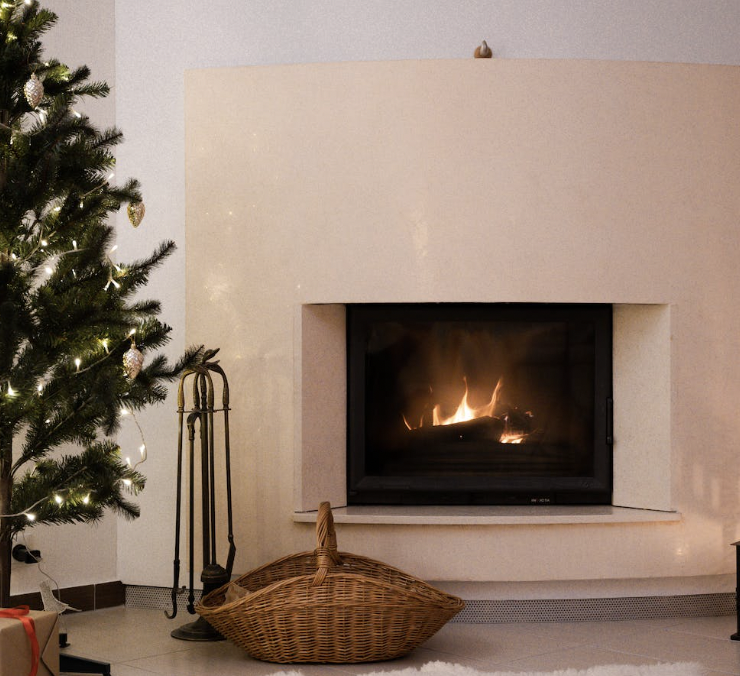
Direct Vent
A direct vent fireplace looks like, well, a typical fireplace! The difference with a direct vent fireplace is simply how the venting works.
With a direct vent fireplace, your fireplace vents outside either through the side of your home or through the roof.
This style allows for installation flexibility – you can basically install your fireplace anywhere as long as it can vent through the side of your home or roof.
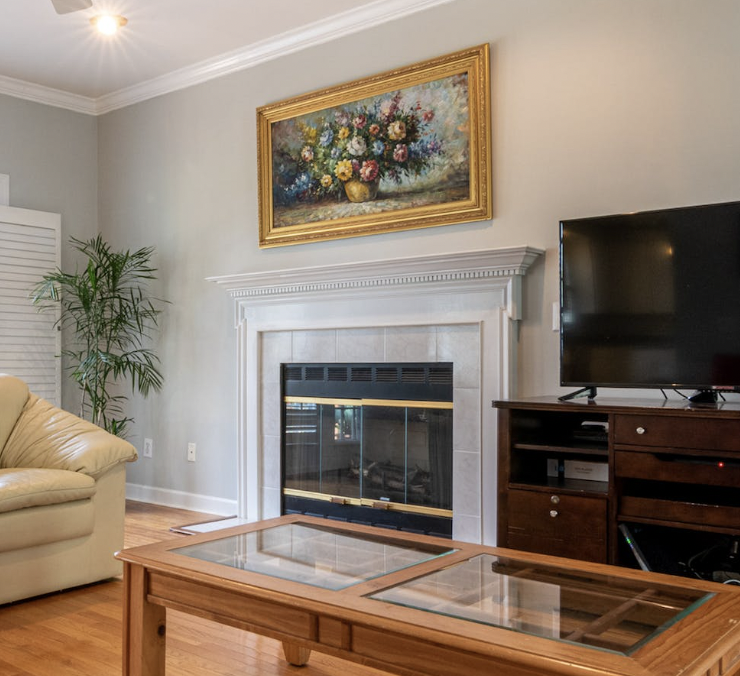
Fireplace Insert
A fireplace insert is a pretty much what it sounds like – a gas-powered fireplace is inserted into an existing fireplace space. This is a great option for homeowners who have a fire-burning fireplace and want to convert it to a gas-powered fireplace.
With an insert, you get to keep all of the beautiful details of your original fireplace, while choosing a more eco-friendly, efficient, and easy-to-use fireplace.
Most types of fireplaces are available in different styles. For example, you can get a propane or natural gas fireplace insert. When looking to install a new fireplace, talk to your technicians to see what styles of fireplaces they are able to install for you. Some styles are more complex and will require more experienced technicians to get the job done right.
Looking For a New Fireplace? Trust Service 1st
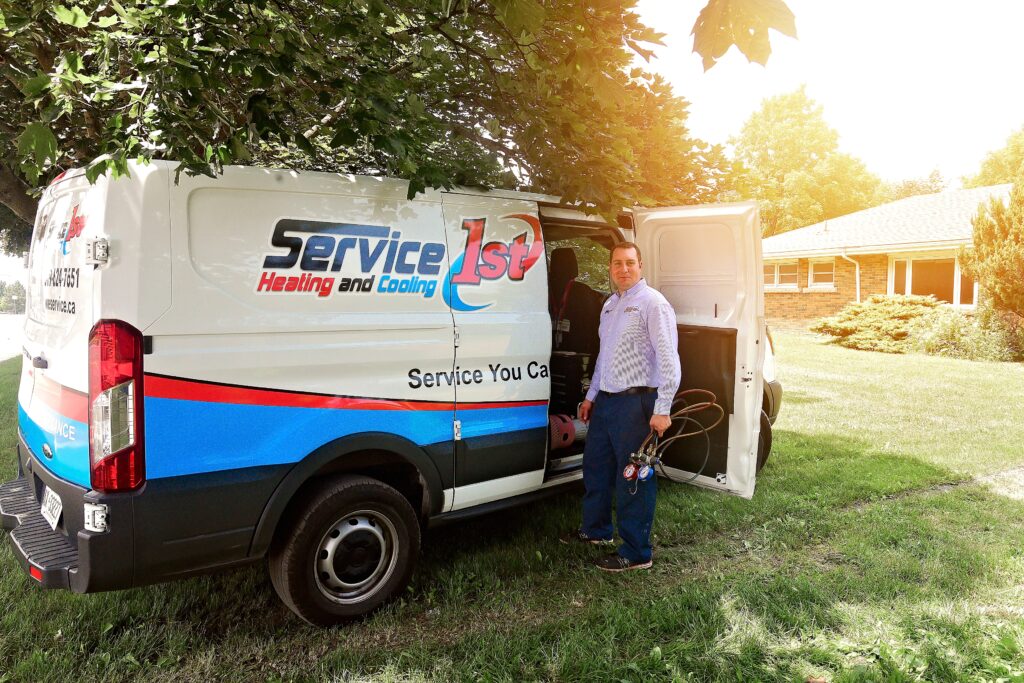
Can’t decide between different types of fireplaces? Whether you’re looking for a new gas or propane fireplace, you can rely on the experienced and professional team of HVAC Technicians at Service 1st. We have experiencing installing:
- A wide range of gas and propane fireplaces
- High-quality Bryant furnaces
- High-quality Bryant air conditioners
- Additional HVAC filtration systems & products
We know heating (and cooling!) We have been serving homeowners in Cambridge and the surrounding areas for over 30 years and have a proven record of excellence. Whether it’s time to replace your air conditioner now or you want to learn more about what unit to buy in the future, we can help.
We are a locally owned and operated business that prides itself on the highest quality work and installation of the highest quality products. We have received the prestigious Circle of Champions award from Bryant – an honour that highlights our commitment to quality, leadership, and excellence in the HVAC industry. We are an Elite Bryant Factory Authorized Dealer and offer our customers the highest quality products and services.







